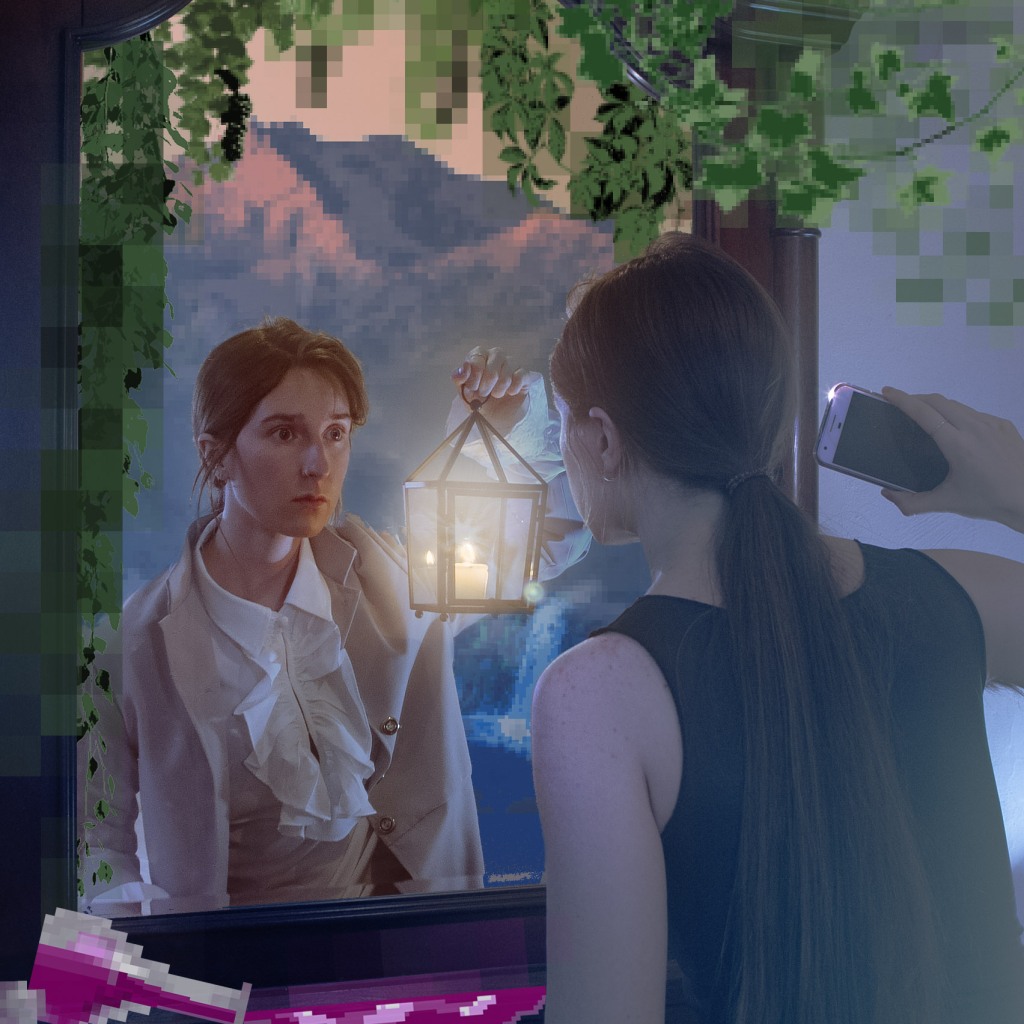There’s a reason fantasy stories tend to grow into long, sprawling series. Whether as enthralled kids who aren’t ready to go to bed or as anxious grown-ups wondering about our own futures, we hear that the hero slayed the dragon and we tend to ask: “Then what happened?” Richmond singer/songwriter and visual artist (Eli)zabeth Owens had a particularly harrowing one of those moments after the release of their debut album, Coming of Age, in 2018. “I had also gotten married right after that, and was just on this low of like, ‘Oh god, what now?’” says Owens. “I was drinking a lot and struggling with these feelings of ego validation. My self-worth was so tied to this project that had just released, and I was like, ‘Who am I? What do I do?’”
Billed as a folk rock fairy tale, Coming of Age told the story of Owens’ own quest for self-actualization through the frame narrative of an imprisoned princess escaping a tower (the liner notes even included a map, like the inside cover of any fantasy novel worth its magic salt). “There was a princess trapped inside me that needed to be let out,” Owens told The Auricular at the time. And though the princess got free in baroque flurries of acoustic guitar, that wasn’t the end of her story or of Owens’. What happened next became a sequel album, Knock Knock, which will be released August 13 via Grimalkin Records.
“I feel like I went inward,” says Owens, looking back at the early days of its writing. “I started really exploring these ideas about failure and self-worth–still drinking a lot, but kind of knowing that there was some relationship to alcohol and drug use that I needed to work through. A lot of these songs gave me the strength to be able to commit to sobriety without having to hit a rock bottom, necessarily.”
Talking over Zoom, sandwiched between a piano on one side and a MIDI keyboard on the other, Owens shows me around the space where that work happened. Sequestered in their apartment, dabbling in more electronic and in-the-box production than on Coming of Age, they took an experimental approach to songwriting, stepping away from live band arrangements. “There was just an explorative process, which I think is part of the reason it’s really powerful,” says Owens. “’Cause I really didn’t make it anything. I feel like it made itself, and I was just along for the ride.”
On any perilous, uncertain quest, it helps to carry a legendary weapon from your personal mythology, and Owens had just the thing: a celtic harp passed down from their mother, who was a primary influence on their love of fantasy, introducing them to classics like The Hobbit and The Last Unicorn as a child.
“My mom is English, and she’s a little bit obsessed with medieval England,” says Owens. “She collects swords and has tapestries all over her house, and it’s cheesy and beautiful. One of the things she bought a few years ago was a Celtic harp, as a decorative item for the house, and it took me years to convince her to give it to me as an instrument.” The tipping point came in 2018, post-Coming of Age. “I was like, ‘Mom, as a wedding gift, you could give me this actual harp that you don’t play at all.’ She finally gave it to me, and I fell in love with it, and that’s that. I’m still not very good at playing the harp, but I enjoy it.”

The spirit of exploration–of trying new instruments and techniques–proved to influence the narrative of Knock Knock as well, particularly the album’s protagonist, who’s undergone a metamorphosis since leaving the tower. “It’s not this binary-gendered princess anymore,” says Owens. “It’s kind of this baroque, androgynous prince character, and he’s kind of transformed into embodying the archetype of the seeker, or the young hero who’s on a quest for treasure.” You can see the prince on the cover of Knock Knock, staring back through the looking glass into Owens’ eyes. I ask whether they see the prince as a version of themself or a distinct character, and to explain, they point to the archetypes found in tarot schema and Jungian psychology–the hero, the ruler, the innocent, the fool, and so on.
“I think my musical process has evolved into helping me explore which archetypes I’m moving through as I develop as a person, and it’s not linear,” says Owens. “It’s kind of an upward spiral. I think all of those characters live inside of me, just like they live inside of everybody, and it’s just, at this moment in time, I seem to be embodying and working through a lot of the patterns and ways of being that the prince would.”
In the story of the new album, the prince attempts to scale the mountains at the edge of the broken kingdom where Coming of Age was set. “Knock Knock is really about trying to find the holy grail that’s always just out of reach, and eventually discovering that you actually can’t climb the mountain, or it’s not always the most efficient route to climb the mountain,” says Owens. “Having to fall over and over again and then understanding that you could dig your way through; you could go through the mountain instead of over it, and there’s treasure in the digging.”
Anyone who’s sunk too many hours into a swords-and-sorcery RPG can tell you the real fun is in grinding through the side-quests and detours you encounter unexpectedly on the road, rather than following the shortest route from point A to point B. But for Owens, the album’s themes grew out of the concept of spiritual materialism, which they first encountered in the Buddhist philosophy of Chögyam Trungpa. Though Owens says they’ve been less active in the practice of late, they remain heavily influenced by Buddhist thought.
”There’s this trap that we fall into when we try to start on a spiritual path where we think, ‘Oh, if I live this spiritual life, everything will be happy and I will have it all figured out. Maybe not happy, but I’ll be content.’ I think this album deals a lot with that trap of, ‘Oh, if I just do X, Y, and Z, if I get sober, if I release this album, if I get my teaching license, it’ll all feel okay.’ And that’s never the case. The reality is that true wisdom and true, like, fully-alive-ness comes from being okay with all the shit that isn’t okay and embracing the falling–the realizing that everything’s always in flux and chaos.”
Written this January at the very end of the album process, Owens’ new single “Receiver” deals with that realization directly, drenched in the sounds of pouring rain, harp flickering underneath. “I just felt like it really captured the spirit of embracing the chaos and the loss of control, and coming to terms with my addiction. Like, ‘You know what? My brain is only a receiver.’ We’re not really in control of ourselves, as much as we want to be. I don’t actually believe that we have free will, but that’s a whole other philosophical debate.”
They also recorded a video for “Receiver” on the streets of Richmond’s Fan District, making use of Snap Camera filters to continuously morph their face–a visual expression of the otherworldly chaos and the ever-shifting archetypes at the story’s heart. Pointing out the green screen across the room from their desk setup, Owens tells me the rest of Knock Knock will also be getting the visual album treatment. Directing and editing the clips, they say, was a fulfilling part of the journey, and of the reciprocal process of working on the album while it worked on them.
“Digital media definitely has its own agency, and I think I’m proud of the fact that it lives and breathes on its own, and I was able to help it do that. And it helped me, you know? As I was refining the songs and the visuals, I was also refining and articulating the feelings, coming back to them and transforming them from these confusing, globby, messy experiences into something that is actually beautiful and shining and helps me be a more whole person.”
You can preorder Knock Knock as a digital album or cassette now. Each edition comes with digital copies of the lyric booklet and album artwork. Having previewed the entire project, I can tell you “Receiver” is only a prologue to the wizardry to come, and it’s a treasure-trove of inspired visions.
To keep up with blog updates, follow The All Scene Eye on Twitter or Facebook
